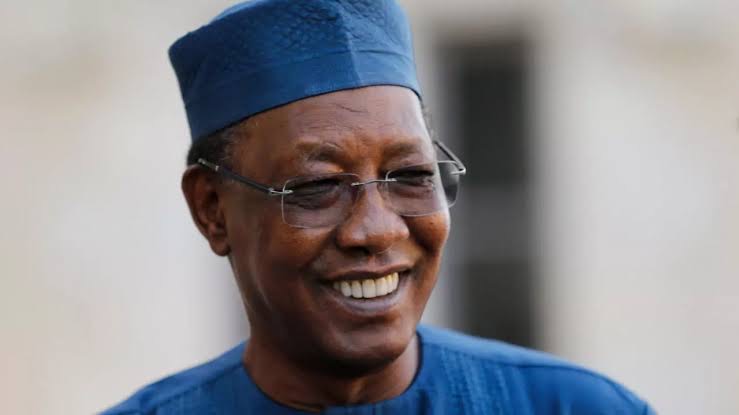Remembering Cameroonian Artist Manu Dibango Who Lost His Battle With COVID19


The announcement of the demise of the veteran Cameroonian Afro-jazz legend, Manu Dibango on Tuesday, March 24, 2020, came as a shock to his beloved fans and the entire jazz music fraternity in Cameroon and around the world. The saddening news of his demise was made public by his family alongside his manager, Thierry Durepaire, in charge of the music publishing business.
Until his demise, he was admitted to one of the hospitals in Paris, where he was diagnosed with the deadly Covid-19 virus. He has become the first musical legend to die from the COVID19 virus. He has died aged 86.
Manu Dibango Background
The Cameroon Artist Emmanuel N’Djoke Dibango, commonly known as Manu Dibango, was born on 12th December 1933, in Douala Cameroon. His father belonged to the tribe Yabassi which is located in Western Cameroon while his mother was from the Douala ethnic group. He passed away on 24 March 2020 after battling COVID-19.
Michel Manfred N’Djoke’ Dibango, Emmanuel’s father, was a civil servant. He was the only child to his parents, though there are claims that he had a stepbrother from his father’s first marriage who was four years older than him. During his childhood days, Dibango became a frequent attendant of the Protestant church, where he learned religious education. In addition, he loved music and was reported as one of the fastest learners.
In 1941, Dibango was admitted into a colonial school, close to his home, where he was taught French. He adored the teacher, who he referred to as “remarkable draftsman and painter.” In 1944, the French president, by then Charles de Gaulle, picked Dibango’s school to perform the welcoming ceremonies after jetting into the country.
Manu Dibango’s Career Highlights
Dibango was renowned for his Vibraphone and Saxophone. Not only is he the founder of the musical style, fusing jazz and an icon of the traditional Cameroonian music, he was a part of the African Jazz, seminal Congolese rumba group, and worked closely with other musicians such as Fela Kuti, Bernie Worrell, King Sunny Ade, Fania All-Stars among others. He commanded a massive following in the United Kingdom after performing the “Big Blow,” which was officially released in the year 1976. In 1998, he and the Cuban artist Eliades Ochoa recorded an album known as CubAfrica.
His song “Soul Makossa” is highly rated and features the lyrics “makossa,” which simply means dance in his mother language, the Cameroonian language Douala. This song has given a lifeline to several popular music hits such as Kool and Gang’s “Jungle Boogie.” The parody song by the title “Boogie in your butt” released in 1982 by Eddie Murphy does not only incorporate Soul Makossa’s bassline but also horn charts. The Poor Righteous Teacher’s hip hop group song by the name “Butt Naked Booty Bless” released in the 1990s features drum patterns and musical bridge to a more considerable extent.
He was the first person to chair the Cameroon Music Corporation. In 2004, he was appointed as a UNESCO Artist for Peace.
“Reggae Makossa” one of his best songs features in Scarface soundtrack video game released in 2006 entitled “The World Is Yours.” In the year 2009, he performed the closing musical performance at the Brecon Jazz Festival. In July 2014, his 80th-anniversary performance that took place in Olympia, France, was aired on TV5Monde.
Remembering Manu Dibango
As the news hit, fans of the star took to social media to reminiscence on the artist and share their experiences. Quincy Jones went to twitter to share his tribute.
I first crossed paths w/ the great Manu Dibango in Paris back in the 50’s & had the great honor of seeing him 1 last time this past summer when he came backstage after my concert (also in Paris)…His contributions to music as we know it today are unparalleled, &… pic.twitter.com/05dgPVkS3o
— Quincy Jones (@QuincyDJones) March 24, 2020
In these #Covid19 times, the great Afro-jazz star “Makossa Man” #ManuDibango’s family requested & gave him a simple private funeral in Paris where he died 24/02/2020. In better times, his casket would have got a parade back home in Cameroon witnessed by hundreds of thousands. pic.twitter.com/DdElOGTALb
— Charles Onyango-Obbo (@cobbo3) March 28, 2020
Did you know that Manu Dibango was 2 times GRAMMY nominee and 2004 UNESCO Artist of the Year? I just learned it today. pic.twitter.com/9zwheTYNTI
— Momo Bertrand (@AskMomoB) March 28, 2020
The #Coronavirus makes no distinction between age, social class, race, etc…
After #ManuDibango, this virus tears another monument from us this evening.
Rest in perfect peace #PapeDiouf ??#Covid19 pic.twitter.com/HSQtVvbh6r— Aminetou Bilal (@aminaricci) March 31, 2020
Asking For His Due
He sued the singer of the song by the name “Don’t Stop the Music” and “Wanna Be Startin’ Somethin'” for using the hook “Mama-say, mama-sa, ma-ma-ko-ssa” without his consent. According to Agence France-Presse, Dibango made the argument that the line is extracted from his song “Soul Makossa.” Consequently, Jackson confessed that he did obtain the line for “Wanna Be Startin’ Somethin'” from Dibango’s song. As a result they agreed to settle the matter out of court.
In 2007, Rihanna, contacted Jackson seeking permission to use the line. Jackson accepted the request without involving Dibango. Dibango, through his legal team, filed another lawsuit demanding compensation in copyright violations. He also requested the court to bar the accused parties from receiving the income for the songs containing the line “Mama-say, mama-sa‘ until the matter before the court is resolved. The judge ruled that Dibango allegations were invalid and that marked the end of the case.
Considering his achievements and the changes he brought into the music industry, it’s evident that the world has lost an icon, mentor, and teacher in Dibango.







Responses